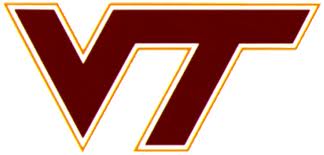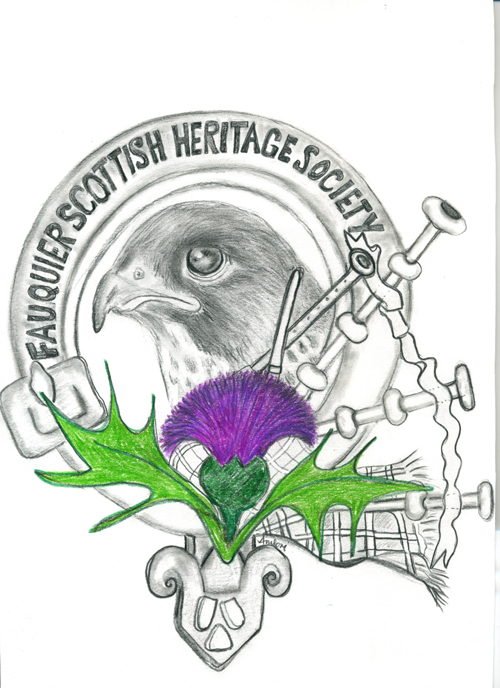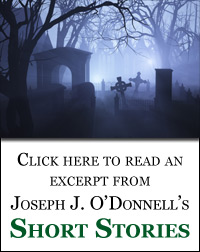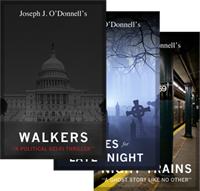 ED- We’d like to introduce Film Maker Tom Flynn to all our readers. Tom you have many credits to your film making career. How did you first start?
ED- We’d like to introduce Film Maker Tom Flynn to all our readers. Tom you have many credits to your film making career. How did you first start?
TF- Well, I went to college at the University of Texas in Austin which is a very film-centric city. There’s a big independent film scene there and it’s also home to a lot of movie-geeks — I am very much one of them and have been since I was a little kid. I majored in Film and made a handful of films while I was there – I also got the reputation of being “the guy who will AD.” ADing, or assistant directing, is usually the least desirable job on set because you have to be the one who cracks the whip and keeps everyone informed of how far behind schedule you are. So the AD is usually the most-hated person on set. I started off being a real hard-nosed asshole because most of the professional ADs I had observed were all assholes, but then I had trouble sleeping at night so I decided to be a nice AD – which made me more pleasant to work with. So I got a lot of work after college being an AD. I eventually went to work for a post-production house in Austin and I did that for a couple of years. It helped me learn a lot about after effects so I soon became “the guy who knows after effects and also ADs nicely.” Surprisingly, there are a lot of filmmakers who shy away from visual motion effects in their projects because they think after effects is a such a mystery. So I got a lot of work since I knew how to work within that realm.
I eventually went to grad school to study film at Chapman University in Orange County, CA. There I learned a great deal about storytelling and met a lot of great people. Again, my reputation as an AD and an After Effects/motion graphics guy followed me, so of course a lot of my friends wound up throwing work my way. Film school is a really great way to develop a strong network of friends and potential collaborators.
ED- You’ve held a number of positions behind the camera. Tell us about them and how they added to your experiences.
TF- Learning how to edit was probably the first thing that really made filmmaking click for me. To this day, it really informs what I do as a director and teaches me to be mindful of my coverage. These days with digital filmmaking, I feel that it’s very possible to have too many options in the editing room. There’s a tendency that digital filmmakers have to over-shoot their scenes, and being an editor helps me curb that tendency.
Of course, ADing has helped me as a director as well. I do a great deal of prep-work when I AD in terms of diagramming the coverage that needs to be shot so as I director, I continue to do all that prep-work out of habit. I feel like ADs absorb a lot of the director’s stress while on set, however I just get really anxious when I’m directing because there’s a lot of waiting for things to happen.
Also, my experience in post-production has given me a better idea of what I’m capable of doing. For instance, a lot of directors shy away from trying to do cool visual effects shots simply because they find it to be intimidating. The truth is, motion tracking, garbage mattes, keyframes, and keying-out green-screen elements are all things that can be done with After Effects, motion, and even final cut pro (among other programs). It’s very beneficial to just tinker around with those programs if time permits. I guarantee a lot of filmmakers would be flabbergasted by what can be done on the software they already have.
ED- What is some of your earliest work?
 TF- The first thing I made where I actually had a crew and a shooting-script was a short film I made at UT called Delusional. It was basically my first film that I attempted to make in a professional (yet, still incredibly low-fi, low-brow, and amateurish) manner. It starts off as this psychological horror film where a guy keeps imagining a creepy homicidal clown, but eventually the main character befriends the clown and it turns into this happy comedy. Of course, it all ends tragically. I’ve always gotten a kick out of mixing horror/genre elements with comedy. It was like I wanted to make a horror film, but I knew I didn’t really have the chops yet to pull off serious scares and whatnot, so I made it a comedy. Sure enough, the “serious” moody stuff in the beginning is pretty laughable. So audiences would usually start watching it and think, “what’s this crap – another crappy student horror film?” then the tonal shift would kick in and everyone finally knew it was okay to laugh at the film.
TF- The first thing I made where I actually had a crew and a shooting-script was a short film I made at UT called Delusional. It was basically my first film that I attempted to make in a professional (yet, still incredibly low-fi, low-brow, and amateurish) manner. It starts off as this psychological horror film where a guy keeps imagining a creepy homicidal clown, but eventually the main character befriends the clown and it turns into this happy comedy. Of course, it all ends tragically. I’ve always gotten a kick out of mixing horror/genre elements with comedy. It was like I wanted to make a horror film, but I knew I didn’t really have the chops yet to pull off serious scares and whatnot, so I made it a comedy. Sure enough, the “serious” moody stuff in the beginning is pretty laughable. So audiences would usually start watching it and think, “what’s this crap – another crappy student horror film?” then the tonal shift would kick in and everyone finally knew it was okay to laugh at the film.
I made another film at UT called Stevenson On Stevenson about a pretentious student filmmaker and his crappy body of work. The film was a little mean-spirited just because student filmmakers are pretty easy targets. It’s one of those projects that I look back on and I clearly see how I would have done EVERYTHING different.
That’s what film school is all about really – it’s a place to go and practice making films and fail at it. It’s okay to make mistakes in film school. How can you learn thousands of solutions without making thousands of mistakes?
ED- We understand that you have recently had one of your projects at the film festivals. Tell us all about it.
TF- Film festivals are great because, again, it’s a great networking opportunity. Yeah, there’s prizes and awards, but the most important thing is that you get your work seen by a room full of people who you try to keep within your network.
It’s really great when you can go to other screenings and parties and meet the other filmmakers and their friends and co-workers. Hopefully, you can get them to come to your screening. It can be a crazy time though – especially if they start playing your film in the wrong aspect ratio or too soft on the volume. It can be frustrating because you’re thinking, “I didn’t spend countless sleepless nights making this thing so that it can be shown like this!” That just stresses the importance of a sound and picture check with the festival organizers before the screening.
The cool thing about working within the horror/comedy genre is that there are a ton of festivals devoted to horror, fantasy, and science-fiction. So if you’ve got a film that fits into a niche like that, it’s very important to take advantage of that when submitting to festivals.
ED- What about your latest project, ‘Soulmates’? Can you reveal something about it for our readers?
TF- Sure. Soulmates is the story of a couples-therapist named Barry who has way more heart than talent when it comes to his job. He goes on a blind date with a woman named Claudina who turns out to be a crazy old witch with an over-active libido. Barry is eventually drugged and wakes up in the middle of a bizarre witchcraft ceremony in which Claudina attempts to possess Barry’s body with ghost of her old flame Jimmy Vega. After a botched escape attempt and some crazy mishaps, Barry is forced to use his shoddy couples-therapy skills in order to make it through the night with his body and soul intact.
It was a lot of fun to make. Definitely an uphill battle – at the time, I was completely unsure how we were going to accomplish a lot of the ghost effects so I had trouble sleeping. The cool thing about going to Chapman University is that their film facilities are open 24/7, so in the middle of the night when I couldn’t sleep, I would run over to the film school and teach myself after effects. We eventually were fortunate enough to have a postproduction house do our effects for us, but still, I now use those after effects skills for a great deal of the work I’m getting.
ED- You also helped direct three episodes of the television show ‘The Guild’. Please tell us all about that production.
 TF- Well, I wasn’t the director on The Guild. I was the AD – the assistant director. Like I said before, the AD is the guy on set who keeps everything moving and makes sure everyone is working in a timely yet safe manner.
TF- Well, I wasn’t the director on The Guild. I was the AD – the assistant director. Like I said before, the AD is the guy on set who keeps everything moving and makes sure everyone is working in a timely yet safe manner.
Working on The Guild was great. It’s a great web-series. A lot of fun. I got that gig because again, I have a reputation as “the guy who can be an AD.” A good friend of mine was the AD on that show for the entire third season but was quite ill for one of the shooting days. I wound up being asked to fill in for him since he and I had worked together a lot during film school. So there I was at 6am the next morning working with The Guild crew. I love the way they work on that show because each season is shot like it’s one big movie. There might be one location featured in several different episodes so we would shoot every scene that takes place in that location in one day. I wound up being credited as AD on three different episodes along with my friend that I was filling in for.
I’m glad I did it because it has led to more work with the same people on down the line.
ED- You have also been an actor. Please let us know about some of the projects that you were in.
TF- Okay. I started acting in high school. Studied theater for my first year of college. Since then I would act for my friends’ projects in film school mainly because they couldn’t find anyone else. Needless to say, I eventually became known as “the guy who also acts.”
So now I’m mainly acting with my comedy group The Greater Good (made up of fellow Chapman alums Will Prescott and Matt Watkins). The majority of the acting I do nowadays is with The Greater Good. We write, shoot, direct, edit and perform sketch comedy for the web. It’s great fun because there’s a real freedom to the whole thing. The sketches are always fun, cheap, and easy to shoot so if one of them doesn’t work, we just make another one. We keep churning them out. Since we have this mentality that they’re not really sacred – they’re more disposable than anything – we feel more prone to try crazy things. (Check out The Greater Good at www.greatergoodcomedy.com).
The Greater Good has also been used in other web-series projects like Semi-Dead, a sort of odd-couple-esque sitcom with zombies. I acted in the fifth episode, directed a couple of episodes and did the visual effects for the entire first season. Again it was a lot of fun because it’s not every project that requires you to stab a zombie in the head with a screw-driver or make a zombie’s head explode (using VFX, not for real). (Check out Semi-Dead at www.semi-dead.com). That show was created by my friend Chris Wiltz who I consider to be a great collaborator and a very smart show-runner.
I also acted in the first season of a web-series called Bad Love. It’s a sort of anti-romantic sitcom about an insensitive sex-obsessed politically-incorrect couple who run an “ironical” T-shirt company. (Check out Bad Love at www.badlove.tv) My good friends Michael Ashley and Valerie Shephard are the show-runners for this one. Again, Ashley, Shephard, and Wiltz are all friends and colleagues from my film-school days at Chapman. It’s definitely a great way to develop a network of talented people.
Web-series are also a great way to stay sharp as a filmmaker on the weekends if your day-job doesn’t allow for any kind of creative outlet.
ED- You also produced the TV special ‘The Crash: The Next Great Depression’. This was done in 2008, not long before this nations’ financial debacle. Was this project created by chance? One would think that it foresaw this catastrophe.
TF- You saw that too? Yeah, I would love to comment but I’m afraid I can’t because that credit just randomly showed up on my imdb.com page. Sounds like a great project though. I would ask the other Tom Flynn that same question.
ED- Tell us about ‘The Lost Boy’ and ‘Isabelle and Stuart’
TF- The Lost Boy was one of the best bad filmmaking experiences of my life. Matt Watkins from The Greater Good wrote this one. We’re both weird guys with weird senses of humor and we basically started out with this bizarre script that would have probably turned out to be like a sketch from our comedy group with a bit of a heart had we just shot it without any input from the school. But we wouldn’t have learned anything if we did that. Nobody really “got it” so we exhausted ourselves trying to churn out a script that would please everyone. It was very “story-telling by committee” which is what happens all the time in Hollywood. At the end of the whole process we had this weird Frankenstein monster of a movie with funny parts that tonally had no clue what it was trying to be – a bizarre comedy about a suicidal narcoleptic nutball or a cute and cuddly family dramedy. But it definitely has some nice imagery in it. Again, you go to film school to make movies like that and learn from them.
Isabelle and Stuart was a little exercise we had to do in film school called a 3-2-1 project. 3 pages, 2 characters, 1 location. I had to be cool and bend the rules, so I had two of one character named Stuart and another character named Isabelle. It was about a dorky girl who attempts to break up with her equally-dorky boyfriend who, it turns out, is a time traveler. In the end, both versions of Stuart explode due to excessive double interaction and meddling with the space-time continuum. The film was very successful because it played at the Slamdance Film Festival (a very hip alternative to Sundance). It was also named one of the coolest videos on the web for 2006 on metacafe. All the success of that film was great, but I’m still not convinced anyone knows what the hell is going on when they watch it. I think it was successful because it was 3 ½ minutes long, it had funny-looking nerds in it, it had sophisticated split-screens in it, and people explode at the end. Otherwise it’s just a bunch of psycho-babble.
ED- What other projects will you be producing in the near future?
TF- Well, like I said, The Greater Good has been very busy lately with a new sketch coming out each month. (Check them out at www.greatergoodcomedy.com). I’m currently directing season two of the web-series Bad Love. (www.badlove.tv)
And all six episodes of Semi-Dead’s first season are currently online for your viewing pleasure (www.semi-dead.com). I believe plans for season 2 of Semi-Dead are underway but nothing’s really set in stone there.
I’m also working on a horror-comedy-romance-ghost story called Accidentally Dead. The script has won some awards in the past so I should probably do something with it. I originally wrote it for live action but I’ve recently decided to try my hand at animation with this story. It’s something I’ve always been incredibly fascinated by and I feel like I have the technology to do it no problem. I’m sure that only my naiveté will get me through it at this point so hopefully I don’t encounter any nay-saying experts anytime soon.
ED- Tom, it has been a pleasure to have this interview with you. I am sure the multiple hats that you have worn, will teach our readers about how much work goes into making films. I hope that you will be share your endeavors with us again.
TF- Absolutely. Thanks a lot. It’s been my pleasure.
Tags: Tom Flynn
Please share the story on Facebook, or donate to support our efforts!


















.jpg)

























